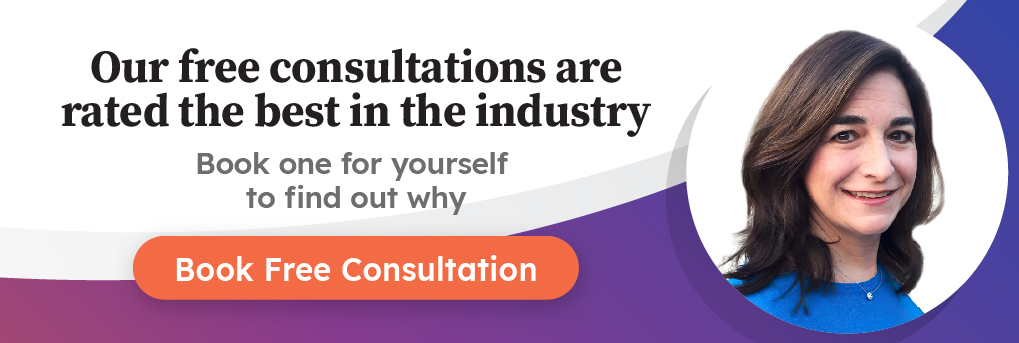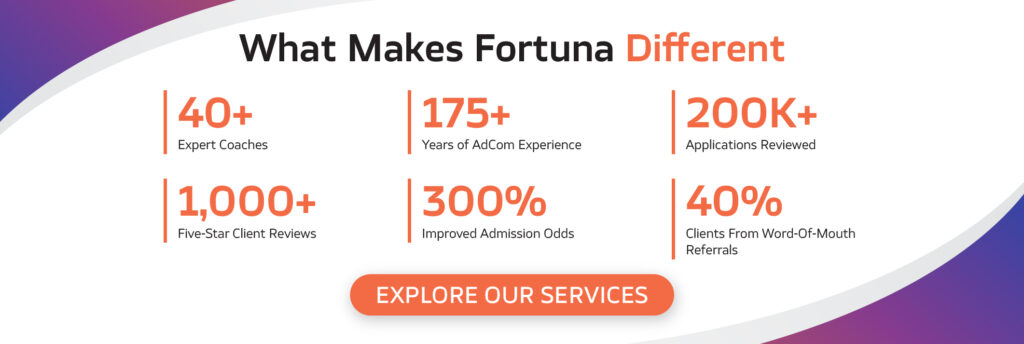The Lauder Institute application asks you to write two essays that reveal why Lauder is the right fit for you, and how you will engage with and enrich its global community. The first essay invites you to explain why you are applying, how your background aligns with your chosen concentration, and how you see yourself benefiting from and contributing to Lauder. The second essay presents a scenario where a classmate makes a statement you find offensive and asks how you would handle the situation.
Strong Lauder essays require you to bring your experiences to life through specific examples, clear motivations, and a sense of purpose. Show that you’ve reflected deeply on your background, that you understand Lauder’s mission and opportunities, and that you already demonstrate the cultural agility, empathy, and collaborative spirit the program values. Together, your essays should create a vivid picture of how you will both benefit from and actively contribute to Lauder’s uniquely diverse and globally engaged community.
How to Answer the ‘Why Lauder & How Will You Contribute’ Essay?
Prompt: Discuss why you are applying to the Lauder Institute, detailing specific reasons, experiences, and background for choosing your Program of Concentration, as well as your interest in further study in that Program. Applicants to Programs of Concentration involving language study (Africa-French; East and Southeast Asia; Europe; Latin America; South Asia, the Middle East, and North Africa) should also discuss what they hope to gain from advanced language and cultural education, as well as describe how they have learned the language they will study (e.g. undergraduate courses, undergraduate major, etc.). Finally, please describe how you see yourself benefiting from, and contributing to, the Lauder community. (500 words max)
Understanding What Lauder Is Looking For
This prompt asks you to connect your personal, academic, and professional background to the Lauder Institute’s distinctive global focus. Lauder’s mission is to develop outstanding business leaders who look globally, engage locally, and act responsibly to have a powerful impact in the world. The committee is seeking people whose past experiences and future ambitions clearly align with this mission – individuals who will thrive in a community built around cultural fluency, linguistic depth, and meaningful contributions.
Your task is not just to list credentials or experiences but to weave them into a narrative that shows why you belong at Lauder and how you will shape the experience for others.
Reveal the Person Behind Your Achievements
Start by reflecting on formative experiences that sparked your interest in cross‑cultural engagement. Perhaps you grew up navigating multiple languages at home, managed projects in another region, or undertook academic research that immersed you in a different culture. Go beyond broad claims and instead bring the reader into a specific moment that shaped how you approach the world. Maybe it was the challenge of leading a team across time zones and cultural norms, or the insight you gained while adapting to life in a country far from your own. Use a vivid anecdote or turning point that illustrates how these experiences have influenced your perspective and aspirations. This is where you show the committee who you are and what shaped your worldview.

Explain Your Program of Concentration Choice
Be explicit about why you’ve chosen a particular track. What draws you to this region or thematic focus? Share the personal connections, professional experiences, and academic pursuits as well as ambitions that make it meaningful. If the track involves language study, describe how you’ve developed that language to date – through coursework, immersion, or self‑study – and what deeper level of proficiency you hope to achieve through the program. This section should leave no doubt that your choice is intentional and rooted in lived experience.
Demonstrate Why Lauder Is Essential
Show that you’ve done your homework about Lauder. Reference specific aspects of the curriculum, research opportunities, or cultural immersions that will help you grow. Make it clear that these elements are not generic benefits but directly tied to your path and aspirations.
Go beyond online research. Seek out conversations with current students and alumni to gain firsthand perspectives. Ask why they chose Lauder, how the program has shaped their short‑ and long‑term goals, and what aspects of the experience have been most impactful. Doing so will give you a deeper, more nuanced understanding of the program which will signal to the committee that your interest is well‑informed and intentional.
The admissions team wants to see that Lauder offers something you genuinely need to further your development and impact, that you’ve taken the time to explore how it will fit into your own journey and are committed to being an active and valuable contributor to the Lauder program.
Coordinate Your Lauder and Wharton Narratives
For joint MBA/MA applicants, keep in mind that your application is read holistically by both committees, so the story you tell in your Lauder essay should align seamlessly with what you share elsewhere. The two sets of essays should complement each other – each adding depth rather than repeating the same points. Think of them as different lenses on a shared vision: your Wharton materials might outline your broader professional direction, while your Lauder essay illuminates why a global, region‑specific, and language‑rich path is essential to that journey. Together, they should form a cohesive and compelling whole.
Show How You’ll Contribute to the Wharton Lauder Program
The program values participants who enrich the learning environment for others. Draw a line from your past to the future: if you’ve built communities, mentored peers, or brought people together across cultures, share those examples and explain how you will do the same at Lauder. Think about contributions both inside and outside the classroom – organizing events, sharing expertise, or supporting classmates in their language and career journeys.
Articulate Why It Matters
Go one layer deeper by explaining what drives your desire to follow the Lauder Mission – to look globally, engage locally, and act responsibly. Is it a personal mission to bridge cultures, a commitment to amplifying underrepresented voices, or a passion for global collaboration? Sharing why these goals matter to you makes your response memorable and authentic.
Key Takeaways
- Tell your story, not your resume. Use vivid examples that reveal your values and cross‑cultural mindset.
- Be specific about your chosen track. Show clear reasons and past preparation for your Program of Concentration.
- Show why Lauder is the right fit. Highlight unique aspects of the program that align with your growth.
- Coordinate your dual application narratives. Ensure your Lauder and Wharton materials build one cohesive picture.
- Connect past contributions to future impact. Give evidence that you will actively enrich the community.
- Share your deeper motivation. Let the committee see why this journey is meaningful to you.

How to Answer the Lauder’s ‘Offensive Statement Response’ Essay?
Prompt: Imagine you’re in a classroom and a fellow student makes a statement you find offensive or problematic. How would you respond? You may use a real experience you’ve had or outline how you’d approach the situation. What principles would guide you, and what would you hope the outcome would be? (200 words max hard cut off)
What This Essay Is Really Asking
At its heart, this question is about your ability to build and protect a respectful, inclusive environment. Lauder attracts a deeply diverse community, and as a result, cross‑cultural conflicts and misunderstandings naturally arise – both inside and outside the classroom. The admissions committee knows that graduates will also face similar situations throughout their careers, and they’re looking for students who already demonstrate the open‑mindedness, flexibility, and maturity to handle themselves effectively in these moments. Your response should show that you can navigate tension in a way that elevates the group rather than shuts it down. It’s not about delivering the perfect “script,” but about showing you can handle challenging dynamics with empathy, courage, and thoughtfulness.
Go Beyond the Obvious
A strong response shows that you would neither stay silent nor respond in a way that escalates the conflict. Instead, you’d approach the situation with balance – acknowledging your own feelings, seeking to understand the other person, and addressing the comment in a way that promotes learning.
It’s even better if you can ground your answer in a real moment from your lived experience – whether in a classroom, a professional setting, or a volunteer group. Drawing on something you’ve actually done makes your response more concrete and credible. If you don’t have a relevant example, a hypothetical is fine, but make it vivid: describe the setting, your thought process, and how you would engage.
Highlight the Principles That Guide You
Clarify what anchors your response. Perhaps it’s respect for all voices, a belief in fostering spaces where people can grow, or a personal commitment to challenging stereotypes. Be explicit about those principles – this gives your answer depth and authenticity. For example, you might write about balancing directness with curiosity, or about how you’ve learned to address issues without shaming others.
Paint a Picture of the Outcome
Don’t stop at how you’d respond – share what you’d hope happens as a result. Maybe your goal is for the person to reflect and reconsider their words, or for classmates to feel empowered to speak up. Admissions readers want to see that you’re motivated by improvement and growth, not by winning an argument.
Key Takeaways
- Reveal your approach in action: A real example, if you have one, makes your response concrete and credible.
- Anchor your response in values: Show the principles – for example, empathy, integrity, respect – that would guide you.
- Demonstrate cross‑cultural maturity: Reflect the open‑mindedness and flexibility Lauder values.
- Aim for constructive impact: Highlight how you’d promote learning and strengthen the classroom environment.
- Keep it tight and vivid: You only have 200 words, so every sentence should add clarity and depth.

Let’s Get You Into Wharton Lauder
Fortuna Admissions is a dream team of former MBA admissions decision-makers from top schools. We know what it takes to stand out because we’ve made the admit decisions ourselves. Whether you need help refining your story, strengthening your essays, or navigating interviews, we’ve got you covered. Our free consultations are consistently rated the best in the industry – and they’re a great way to get personalized advice and honest feedback on your profile. Book your free session with us today.




